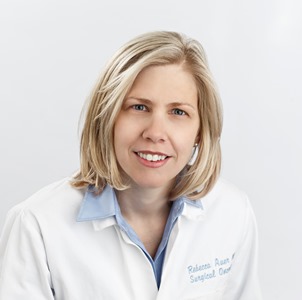 Surgery is very effective in removing solid cancers, but it also suppresses the immune system in a way that makes it easier for remaining cancer cells to survive and spread. New research led by Dr. Rebecca Auer shows that surgery paralyzes immune cells called Natural Killer (NK) cells in a way that was not previously appreciated. While other studies have focused on the ability of NK cells to directly kill cancer cells, Dr. Auer and her team looked at their ability to release a molecule called interferon gamma, which can indirectly help kill cancer cells. Using blood samples from 42 colorectal cancer patients, they found that surgery reduced NK cells’ ability to produce interferon gamma by at least 83 per cent, and the effect lasted more than a month. This study received the best paper award at the American Society of Surgical Oncology meeting and was published in Annals of Surgical Oncology. Dr. Auer’s research on NK cells has also inspired three clinical trials at The Ottawa Hospital that could to help prevent cancer from spreading after surgery.
Surgery is very effective in removing solid cancers, but it also suppresses the immune system in a way that makes it easier for remaining cancer cells to survive and spread. New research led by Dr. Rebecca Auer shows that surgery paralyzes immune cells called Natural Killer (NK) cells in a way that was not previously appreciated. While other studies have focused on the ability of NK cells to directly kill cancer cells, Dr. Auer and her team looked at their ability to release a molecule called interferon gamma, which can indirectly help kill cancer cells. Using blood samples from 42 colorectal cancer patients, they found that surgery reduced NK cells’ ability to produce interferon gamma by at least 83 per cent, and the effect lasted more than a month. This study received the best paper award at the American Society of Surgical Oncology meeting and was published in Annals of Surgical Oncology. Dr. Auer’s research on NK cells has also inspired three clinical trials at The Ottawa Hospital that could to help prevent cancer from spreading after surgery.
“This study provides a new understanding of how surgery suppresses the immune system in people with cancer,” said Dr. Rebecca Auer, surgical oncologist and head of cancer research at The Ottawa Hospital and associate professor at the University of Ottawa. “We’re now leading three clinical trials, which could help prevent cancer from coming back after surgery.”
Authors: Angka L, Martel AB, Kilgour M, Jeong A, Sadiq M, de Souza CT, Baker L, Kennedy MA, Kekre N, Auer RC.
Funding: This research is possible because of generous donations to cancer research at The Ottawa Hospital. This study was also supported by the Canadian Institutes of Health Research, the Cancer Research Society and The Ottawa Hospital Academic Medical Organization, with in-kind support from ATGen.
The Ottawa Hospital: Inspired by research. Driven by compassion
The Ottawa Hospital is one of Canada’s largest learning and research hospitals with over 1,100 beds, approximately 12,000 staff and an annual budget of over $1.2 billion. Our focus on research and learning helps us develop new and innovative ways to treat patients and improve care. As a multi-campus hospital, affiliated with the University of Ottawa, we deliver specialized care to the Eastern Ontario region, but our techniques and research discoveries are adopted around the world. We engage the community at all levels to support our vision for better patient care. See www.ohri.ca for more information about research at The Ottawa Hospital.
University of Ottawa: —A crossroads of cultures and ideas
The University of Ottawa is home to over 50,000 students, faculty and staff, who live, work and study in both French and English. Our campus is a crossroads of cultures and ideas, where bold minds come together to inspire game-changing ideas. We are one of Canada’s top 10 research universities—our professors and researchers explore new approaches to today’s challenges. One of a handful of Canadian universities ranked among the top 200 in the world, we attract exceptional thinkers and welcome diverse perspectives from across the globe. www.uottawa.ca
Media Contact
Jennifer Ganton
Director, Communications and Public Relations
Ottawa Hospital Research Institute
Office: 613-798-5555 x 73325
Cell: 613-614-5253
jganton@ohri.ca
